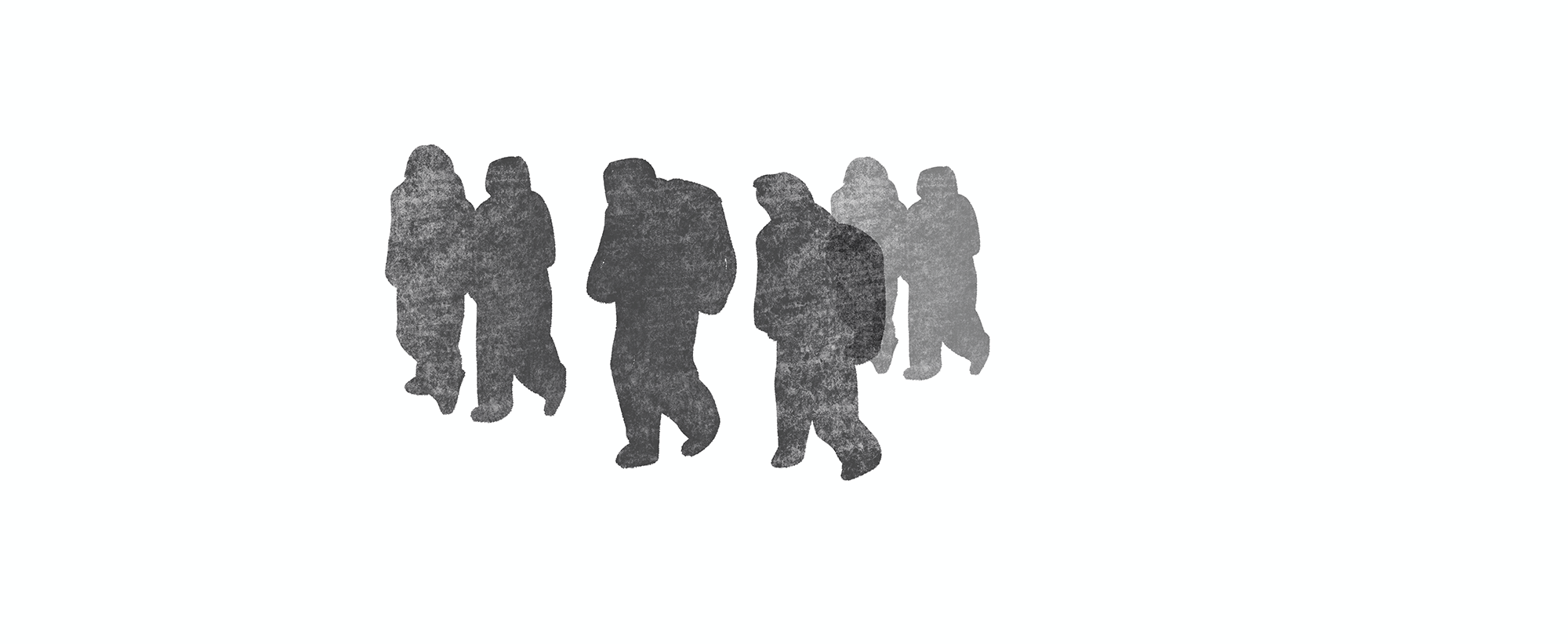

Loading...
Headphones are recommended


Click to start
Headphones are recommended


Loading...
Headphones are recommended


Click to start
Headphones are recommended
Part III:
A BOY
LOSES HIS FATHER




Scroll
“The last time he went to hospital was also the first time he was diagnosed with the disease”.


Vo Thien Quan was born in 2006 in Ho Chi Minh City.
Quan’s father died at home from liver cirrhosis on August 2, 2021, when the city was imposing COVID-19 social distancing measures according to the Government’s Directive 16.
During this period, the southern city recorded between 4,000 to 5,000 new cases of COVID-19 every day, according to data from the Ho Chi Minh City Department of Information and Communications.


Quan’s father is Vo Trung Hieu, born in 1985.
He had worked for a city transportation company.
He and his son lived together in a small alley in District 7.
Unlike many other unemployed workers residing in this alley, he was fortunate enough to keep his job and maintain a steady source of income when COVID-19 broke out.
However, that luck did not last for long.
In May 2021, Quan’s father was first diagnosed with end-stage liver cirrhosis.
After staying in hospital for two to three days, he asked to be discharged. It was the first and last time he was hospitalised for treatment.


He then drove his son on an old motorbike through the small alley as the pair headed home.


A few days later, he suffered from swelling in the legs and abdomen and was unable to move.
Quan asked someone to buy a chair for his father to lie on.
It was here he lay there until he eventually died.


On May 27, 2021, Ho Chi Minh City recorded 36 cases of COVID-19 linked to the outbreak at the Renaissance Mission Church.
Many areas across 16 districts were blocked. The outbreak signaled the start of the fourth wave of the COVID-19 pandemic in the southern city.
Five days later, the municipal administration imposed social distancing rules throughout the city in line with the Government’s Directive 15 with many strict regulations, including those on travel restrictions.
Quan’s father did not go to hospital for re-examination and medicine.


Upon hearing about his illness, Mr. Hai, a local neighbour living at the end of the alley, brought a pack of traditional medicine to Quan’s father.
Mr. Hai’s predecessors had practiced using medicinal herbs to save people and had passed down the profession to younger generations.
Mr. Hai therefore hoped that the pack could save people suffering from end-stage liver cirrhosis.


Quan extracted the medicine regularly for his father to drink, but Mr. Hieu continued getting weaker.






After more than a month of deploying social distancing measures, the daily number of fresh infections kept increasing. Ho Chi Minh City therefore decided to impose stricter social distancing rules by putting in place the Government’s Directive 16. Tougher travel restrictions came into effect.
On July 23, the first cases of COVID-19 were recorded in the alley where Quan and his father were living. Nearly 10 members of Mrs. Hau’s family tested positive and they were all brought to a concentrated isolation facility at the same time to undergo medical surveillance.


Quan panicked because his father was sick amid the virus resurging once again.


The entire alley was therefore blocked off and iron railings were erected. No one was allowed in or out except in cases of emergencies.


Without relatives to visit, Quan became the main caregiver for his father. Without permission to go shopping, their daily meals mainly consisted of rice and vegetables which philanthropists had dropped at the entrance of the alley.
Quan’s father also stopped using Mr. Hai’s medicine.
On July 29, bad news came. Mrs. Sau’s brother passed away in the isolation facility. It marked the first local COVID-19 death. No one came to visit each other and the entire alley was filled with a sense of fear. The smell of alcohol spray at Mrs. Hau’s house was left hanging in the air throughout the small alley.
Four days later at 19:30, Quan’s father took his last breath on his usual chair in the house.


The house he had just bought for a few months was originally supposed to be a shelter for father and son to start a new stable life.




That night, five or six people wearing thick white protective gear walked into the small alley. They were all wearing masks and Quan did not know who they were.


Staff at the funeral home put Quan’s father in a COVID-19 body bag. Since the COVID-19 outbreak, this practice had been mandatory at all funerals, whether the person died of the virus or not.


Just a few months previously, Quan and his father had gone on a holiday to Vung Tau together with some friends.
It was the first time the 15-year-old boy had been away from home.




“Dad, don’t drink anymore, just live with me”.


At midday the following day, the staff of the funeral home put the coffin on their shoulders.


Quan then saw his father off up to the end of the alley. He paid his last respects to his father through the iron railings which were as high as the waist of an adult person.
He did not cry.
Suddenly he remembered the funeral of his grandmother who had lived with Mr. Hieu and Quan since birth.
She passed away just over a year ago. At her funeral, Quan wanted to cry but the tears didn’t come.




After his father’s death, Quan became an orphan.
But unlike the 4,500 orphans whose parents had died from COVID-19, Quan did not receive any allowance because his father had died of another illness.
Within four months every activity in the city had come to a grinding halt. Many sick people were unable to have their health examined or receive treatment in time.
In fact, a large number of hospitals in Ho Chi Minh City had refused emergency cases because they were in a blockade following the detection of several COVID-19 infections in the premises. Meanwhile, field hospitals were only able to accept patients suffering from COVID-19.
Due to economic deterioration, coupled with an overburdened health system, patients were unable to access standard medical care. Many therefore tried to protect themselves by using medicinal herbs of unknown origin.
Disclaimer: Vo Thien Quan is a minor. The 2D drawings in the article do not represent the character's real-life appearance.
Learn more: Mother!
Mother is the story of Thanh Ngoc, a 15-year-old girl, living in Ho Chi Minh City. She is one of nearly 4,500 orphans due to the pandemic in Vietnam. Her mother passed away from COVID-19. Thanh Ngoc has to replace her mother to take care of 3 other siblings.